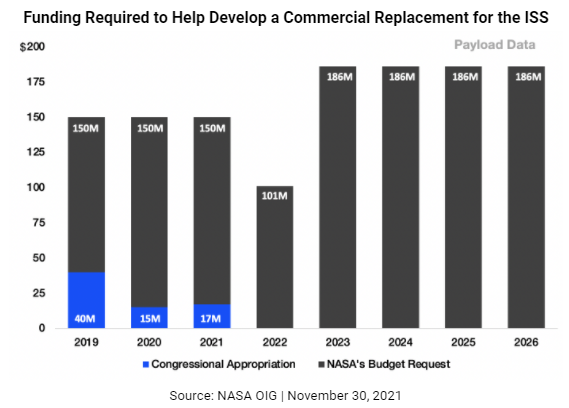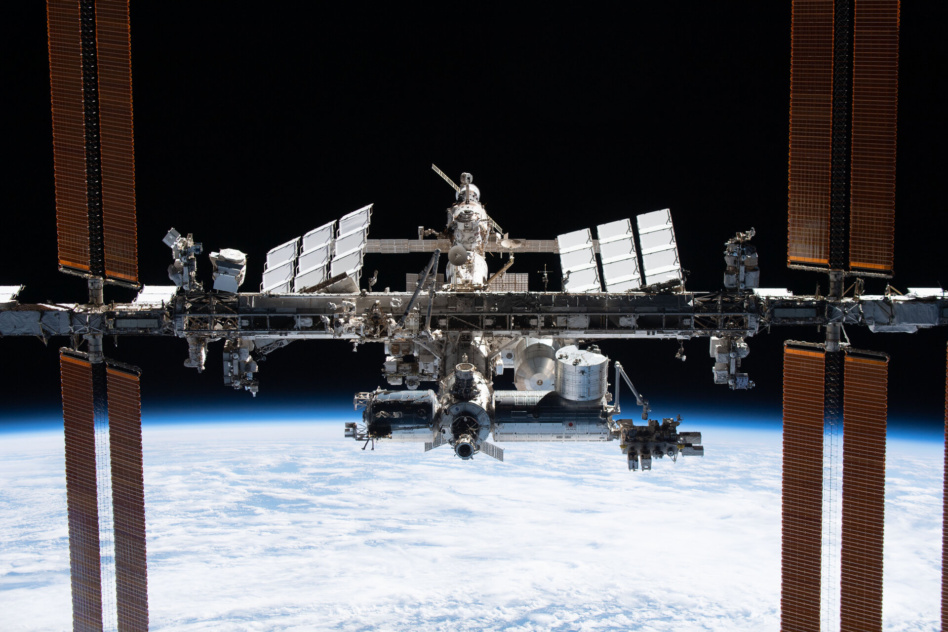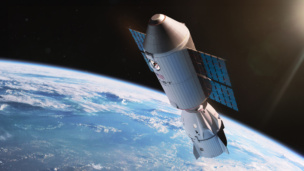The ISS is the most expensive object ever built by humanity, and the largest scientific and engineering collaboration the world has ever witnessed. The space station treaty, signed Jan. 29, 1998 by the EU, the US, Russia, Canada, and Japan, represented a new era of cooperation that ushered in significant scientific and technological breakthroughs for the world.
The station was historically shielded from Earthly geopolitical conflict, but the fallout from Russia’s invasion of Ukraine is flashing new warning indicators that NASA can’t ignore. Following President Biden’s sanctions that cover Russia’s aerospace industry, Roscosmos chief Dmitry Rogozin issued a stark warning about the ISS:
- “Do you want to destroy our cooperation on the ISS? If you block cooperation with us, who will save the ISS from an uncontrolled deorbit and a fall on the United States or Europe?…The ISS doesn’t fly over Russia, so the risks are all yours.”
Historians may quickly point out Rogozin’s track record of bluster, particularly in 2014 following sanctions associated with Moscow’s invasion of the Crimean peninsula. Rogozin famously suggested that NASA “bring their astronauts to the International Space Station using a trampoline.” This time, though, the situation is different.
Launch and LEO dynamics have changed considerably since 2014. Moreover, Moscow and Beijing are now determined to partner on ambitious future space missions that would place them in direct competition, military and otherwise, with the US.
A new outpost enters the fray
And, importantly, Tiangong, China’s first long-term space station is on track to be completed by the end of this year. As NASA’s relationship with its Russian counterpart deteriorates, a new LEO outpost could shift the balance of power in orbit. Tiangong will dramatically increase China’s ability to collaborate with other countries in orbital research all while the ISS continues to show its age. The ISS could start to epitomize the decline of a once clear US leadership in low Earth orbit (LEO).
The need for a successor station for the West has never been more obvious. Demand for a platform in LEO is expanding as governmental space budgets around the world increase significantly and commercial use cases take shape. Without orbiting infrastructure, the research impact alone for NASA is significant:
- Under current plans, health risk mitigation testing required for deep space human exploration won’t be completed by the expected retirement date of the ISS (especially if Russia pulls out after 2024).
- Technology demonstrations for Mars mission planning require a microgravity test environment. On the agency’s current timeline, many of these demonstrations will not be complete.
- Continuity for the over 130 annual experiments that the agency has been sponsoring for years is at risk.
Most troubling is that human access to LEO will have to be facilitated through China’s Tiangong space station, should US industry not field any on-orbit replacements by the ISS’s decommissioning and deorbiting. We’re getting déjà vu from 2011–2021, when NASA was solely reliant on Russia’s Soyuz rocket for crewed launches.
To NASA’s credit, the agency has pledged to help replace the ISS with one or more commercially owned stations. The budgetary commitment from Congress tells another story, though, and remains woefully inadequate:

The upshot? Though there are proposals for commercial outpost that will likely be partially funded via private capital, they aren’t entirely self-sustaining. And these projects shouldn’t be left to chance. Commercial demand for in-space infrastructure will materialize but could take longer than expected.
Congress needs to step up and ensure that funding and operational gaps are not left to chance during the development of private on-orbit ISS replacements. We can’t risk another Skylab. With China’s head start in a next-gen LEO outpost and Russia’s stated intent to ditch the ISS, it’s clear the future of US leadership in space hangs in the balance. Time is of the essence.




